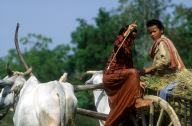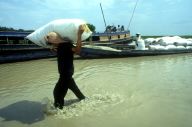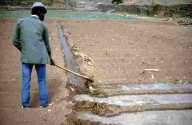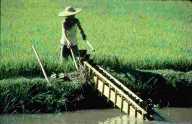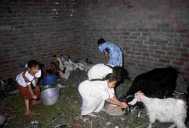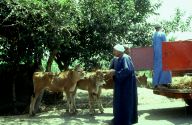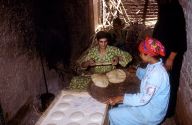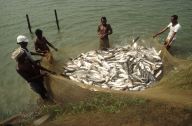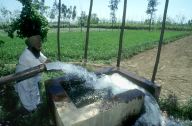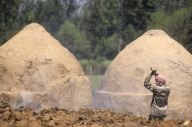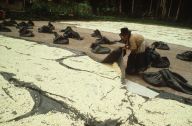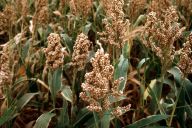|
The
December 2007 Issue (23.4) of LEISA wants to examine how farmers are developing
and using ecological solutions and strategies for preventing or fighting crop
pest problems. Examples are welcomed of how farmers, by rethinking their natural
resource management practices, are making their cropping systems much more
resilient and resistant to pests such as harmful insects, nematodes, diseases
and weeds. Examples could include companion
planting, push-and-pull systems, use of natural enemies, crop rotation, and
sustaining good plant health through maintaining soil fertility levels and
regulating soil acidity.
Various approaches have
been developed to encourage farmers to move towards more ecological pest
management practices. Integrated Pest Management, developed since the 1970s, is
well-known. It began as a technical approach designed to reduce the number of
pesticide applications in crops. It subsequently developed into a methodology in
which farmers were encouraged to develop healthier pest management interventions
themselves, in the process of coming to a better understanding of their
agro-ecosystems.
It would be interesting
to hear about practical experiences with the Farmer Field School approach to
pest management. This approach combines training with field-based,
location-specific research to build in farmers the skills, knowledge and
confidence to make ecologically sound and cost-effective decisions on crop
health. As it has now been in use for quite some time, it would be interesting
to hear how it has evolved, spawned other initiatives, and been scaled up. The
focus on IPM may have shifted, from ‘integrated pest management’ towards
‘ecological crop management’, from a single crop to farm level and beyond. We
welcome examples of how fieldworkers, government extension departments and NGOs
have changed in order to support these processes better. Experiences that
illuminate changing relationships with local input suppliers and traders are
also welcome.
Lastly, it would be
interesting to learn from both the successes and the failures: which practices
and approaches have sustained and which ones have not?
Submission of articles: by 1 September 2007 to Jorge Chavez-Tafur, Editor (
This e-mail address is being protected from spam bots, you need JavaScript enabled to view it
). See also guidelines for authors.
|
